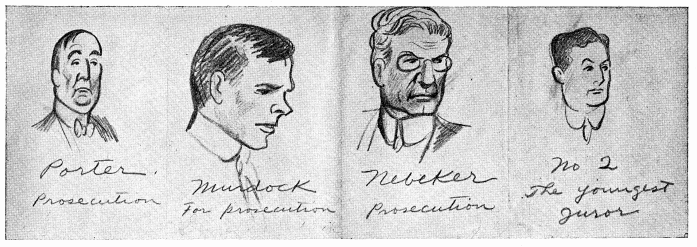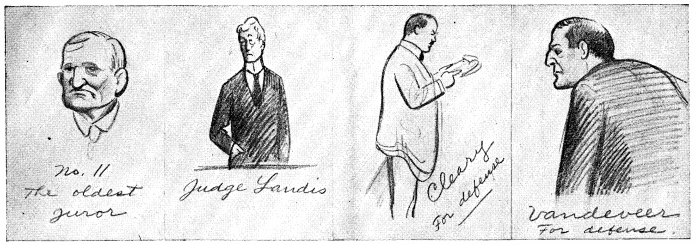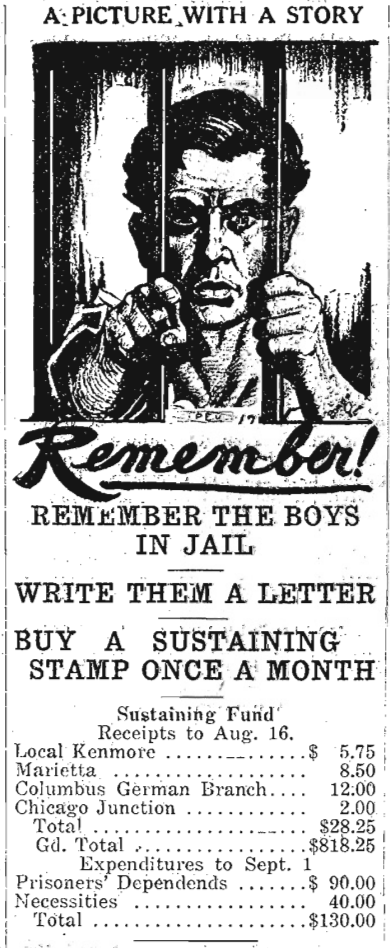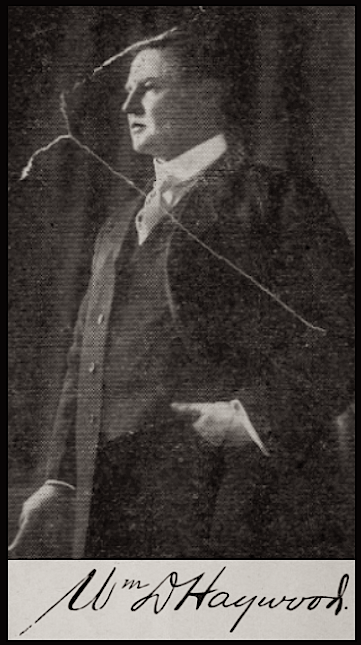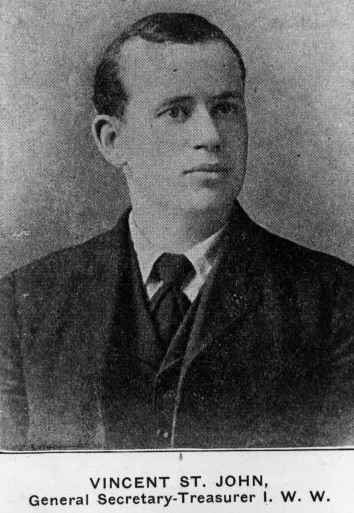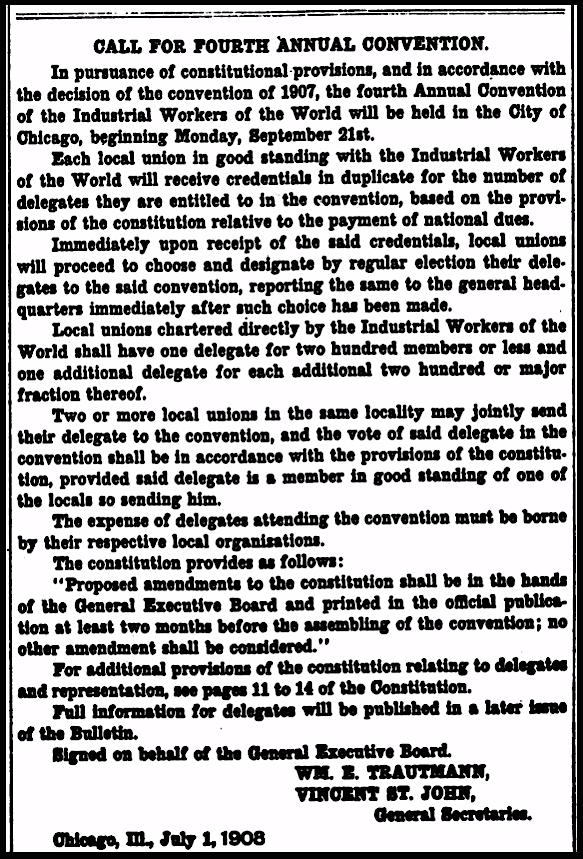 —————
—————
Hellraisers Journal – Saturday January 13, 1912
New York City – Haywood and Hillquit Debate Labor Question at Cooper Union
From The New York Call of January 12, 1912:
The first of a series of meetings for the discussion of the various problems confronting the Socialist party of America was held in Cooper Union last night with Julius Gerber, organizer of Local New York, which has arranged these meetings, presiding.
The big hall was jammed to the doors and the audience followed every word of the protagonists with breathless interest.
The meeting was a sort of family affair, only holders of red cards being allowed in the hall. A few Socialist Labor party men smuggled themselves into the crowd on borrowed S. P. cards. They were promptly recognized and Chairman Gerber asked that they leave the hall, which they did.
The subject of the discussion last night was “What shall the attitude of the Socialist party be toward the economic organization of the workers?”
William D. Haywood and Morris Hillquit were the debaters. Each of them was given an hour, the time being divided as follows: half an hour for the outline of the debate by each speaker, then each one got twenty minutes for rebuttal and finally ten minutes for closing the discussion.
Haywood opened the discussion. The burden of his arguments in the main was that the Socialist party should go among the workers and begin a propaganda for industrial unionism, for one big union. He assailed the American Federation of Labor and said that the Socialist party is acquiescing in the policy of the American Federation, which was a distinctly anti-Socialist and capitalist policy.
Industrial Form Superior, But-
Hillquit in his reply to Haywood said that there can be no question in the mind of any Socialist that the industrial form of organization is superior to the craft organization. But he did not believe that the Socialist should begin preaching industrialism outside of organized labor. The Socialist party, he said, should keep up its policy of trying to reach the workers in their present unions. The policy has been successful, Hillquit said, as is shown by the fact that every union affiliated with the American Federation of Labor has Socialists in important positions, as well as in the rank and file. These men have been elected to these positions by the rank and file, he said, because they were Socialists.
[…..]
Haywood’s Final Reply.
Haywood took the floor to reply in his final ten minutes.
He declared there is nothing in common between the policies of the American Federation of Labor and the Socialist party. The former, he said, is craft conscious as opposed to the class consciousness of the latter. He went on to show that by high initiation fees, curtailment of apprentices and even closing of books, membership is kept down and would-be members excluded…..
He went on to say that he had never advocated anything else but the organization of the workers as one man, and that he had believed and still believes the craft form of organization to be “ethically unjustifiable and tactically suicidal.”
At the same time he urged the necessity for political action, the political power to be used, not after the social revolution, but under present conditions, citing as an instance of its use the turning of the police against strikebreakers instead of against strikers.
Haywood explained that in criticizing the American Federation of Labor he criticized its leaders, who were members of the Knights of Columbus and of the Civic Federation executive.
Hillquit Finds Mystery Deep.
In taking the floor to close the debating. Hillquit declared that the mystery had deepened, seeing that Haywood did not oppose the rank and file of the A. F. of L. but the members of the Executive Committee of the Civic Federation…..
The difference between the speaker’s policy and Haywood’s, Hillquit declared, was that the former, while condemning the policies of Samuel Gompers, made efforts to educate the rank and file, while Haywood was ready to kick over and destroy the whole A. F. of L.
[…..]
[Emphasis added.]

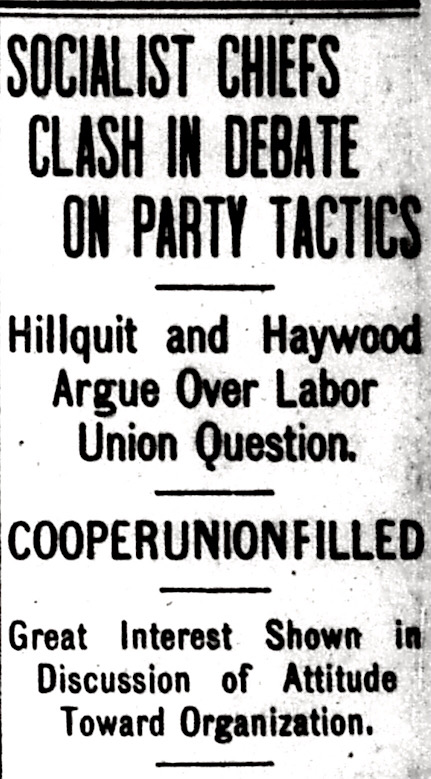
 ———-
———-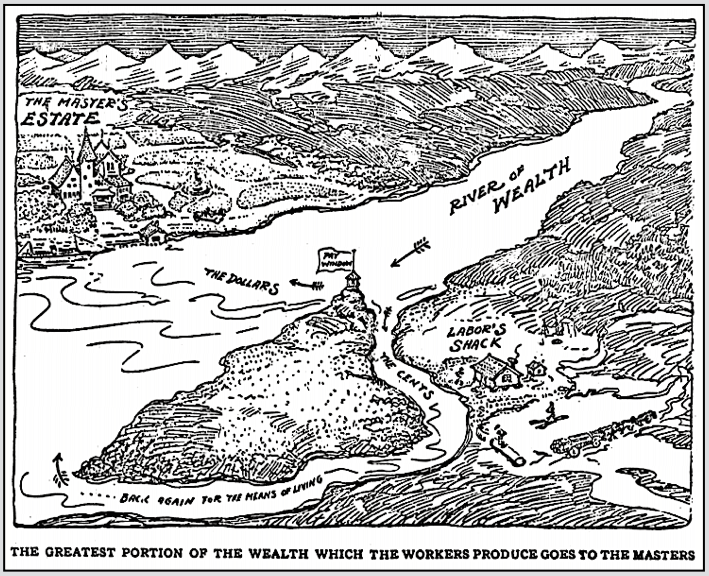
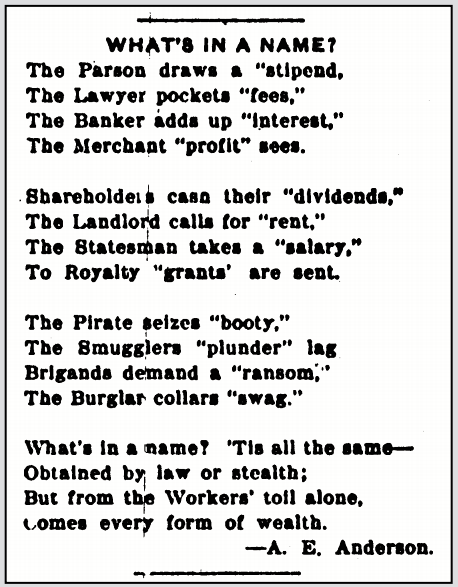

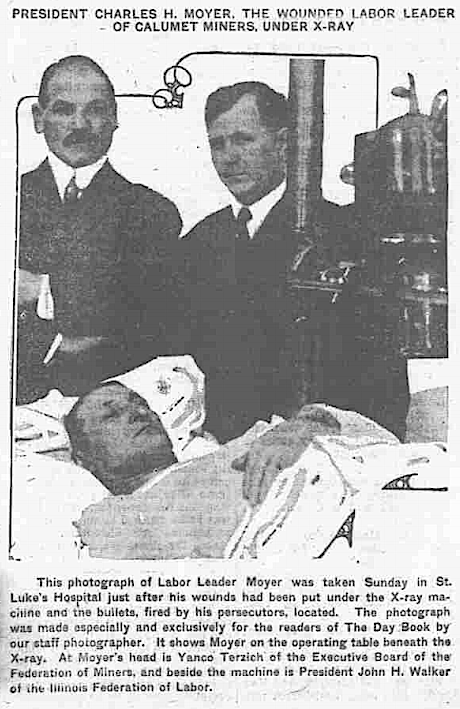
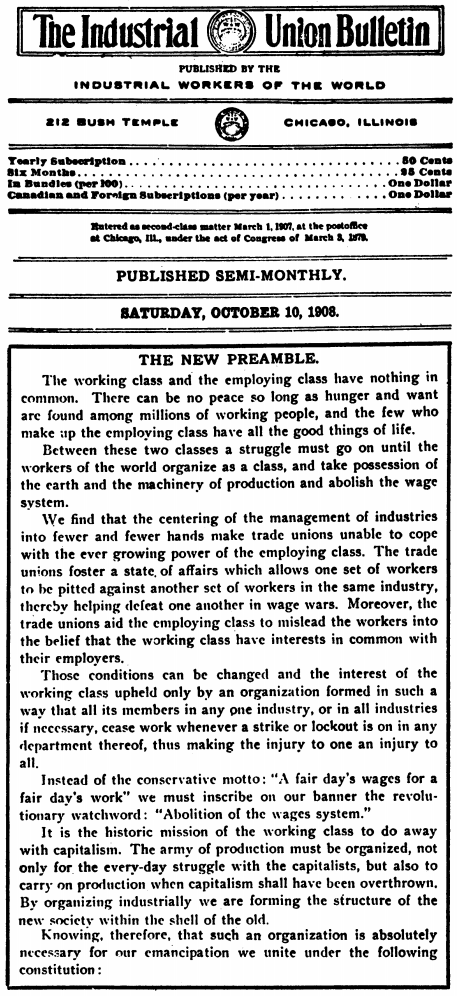

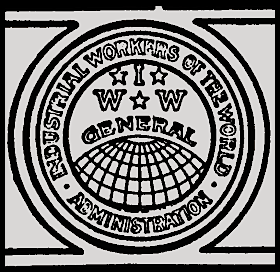
 HE SUBJECT of industrial unionism is to-day receiving the attention of the revolutionary labor movement of the world. And the opposite wing of the labor movement, the conservatives, are likewise studying it, but with the aim of defeating its revolutionary object.
HE SUBJECT of industrial unionism is to-day receiving the attention of the revolutionary labor movement of the world. And the opposite wing of the labor movement, the conservatives, are likewise studying it, but with the aim of defeating its revolutionary object.